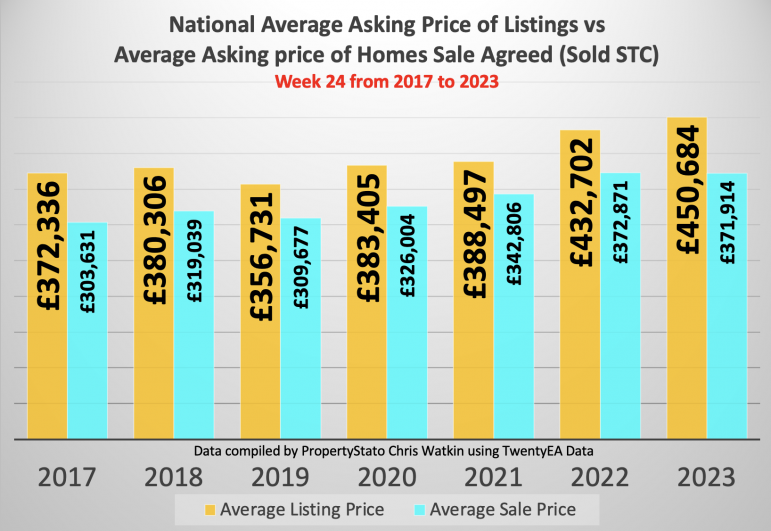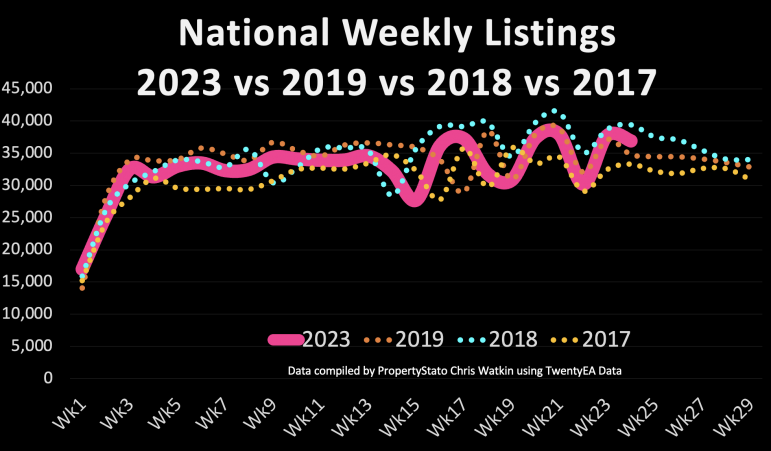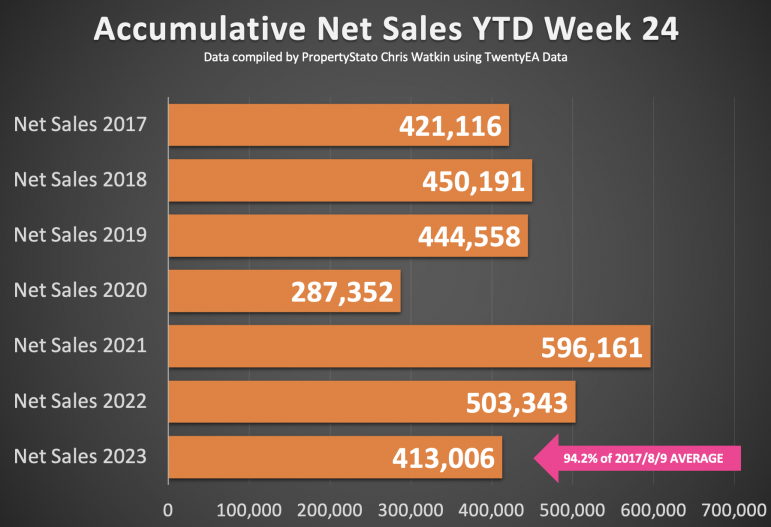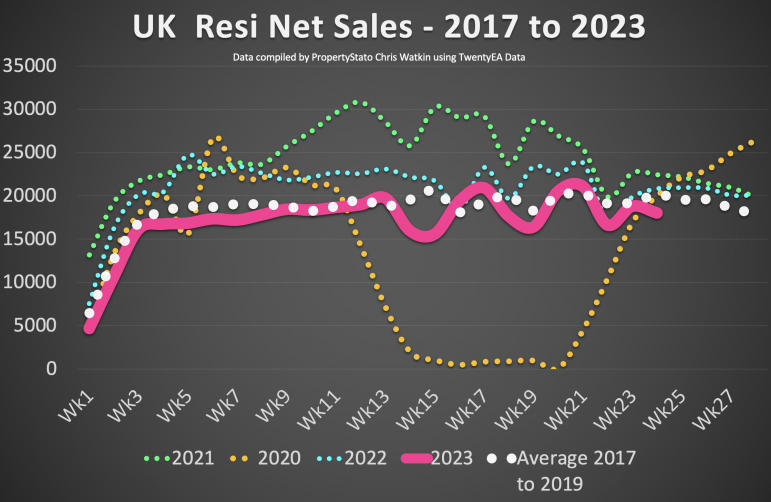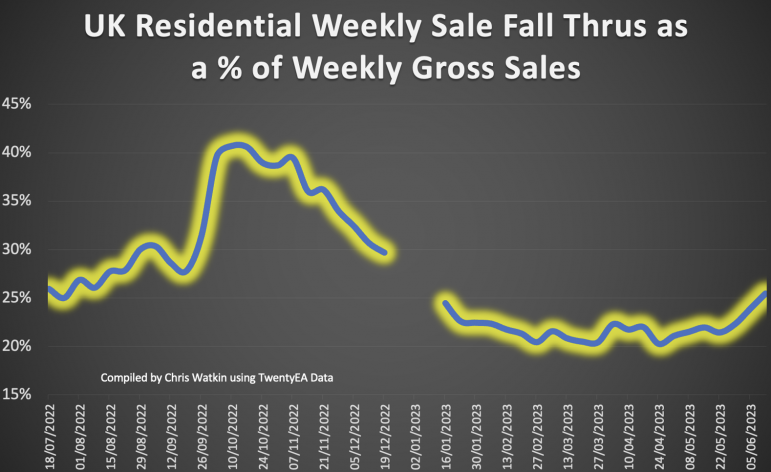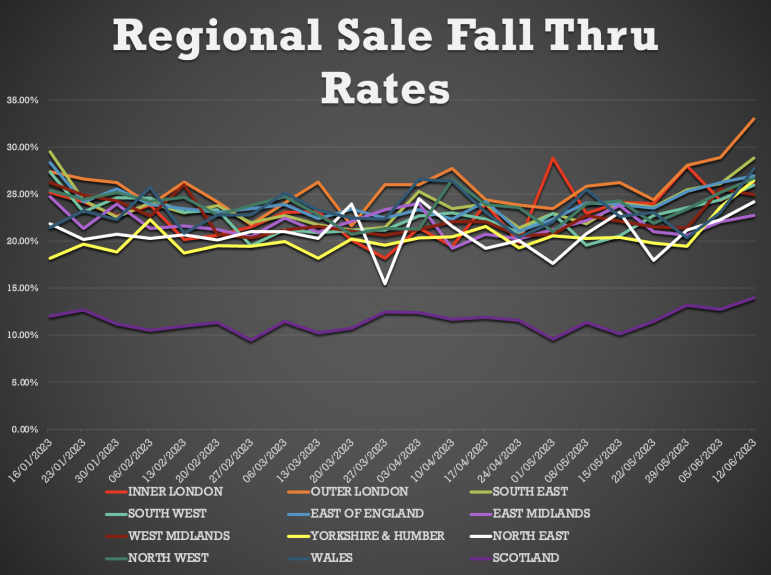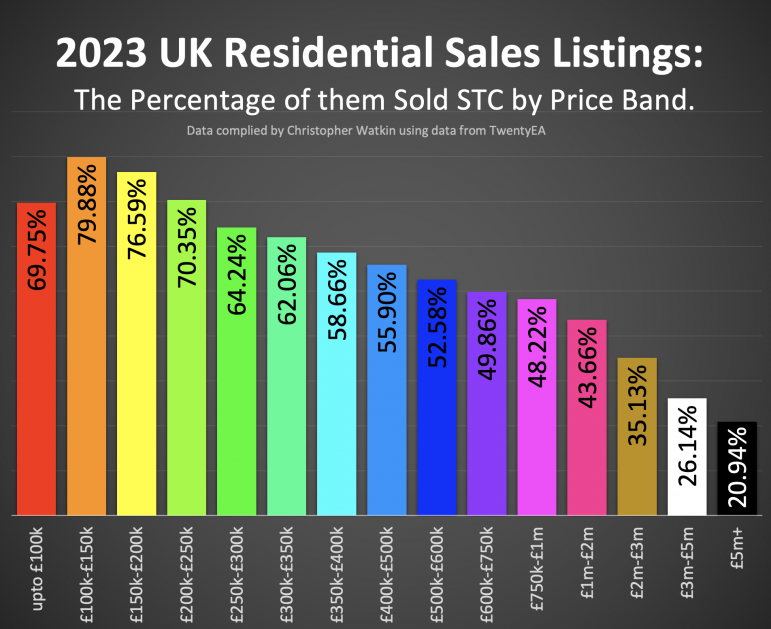The UK’s private rental market saw a 5% surge in rents in the year to May – with growth now outpacing the previous 12-month period, the Office for National Statistics (ONS) reveals.
That’s when average prices rose by 4.8% with England’s rents increasing by 4.9%, while Wales and Scotland experienced slightly higher growth of 5% and 5.4%, respectively. In England, the West Midlands led the way with the highest change at 5.2%, whereas the North East trailed behind with a more modest 4.3% increase.
London’s rents grew by 5.1% over the same period which surpasses the average for England but also marks the capital’s highest annual rise since October 2012.
Nathan Emerson, the chief executive of Propertymark, said “the demand for property across the UK in the private rented sector (PRS) continues to grow, with no increase in properties coming on the market. With rental prices continuing to grow on the back of the high demand and soaring interest rates, there needs to be more incentives from the government for landlords to stay in the PRS and continue to provide homes for renters.”
Emma Cox, the managing director of real estate at Shawbrook, said “the UK property market is navigating challenging conditions, including high interest rates, inflation, and reduced budgets. While landlords may feel nervous, astute professional investors can seize opportunities in this situation. As a result, this influx of investment helps alleviate the shortage of high-quality rental properties, meeting the demand from renters who currently have limited options.”
House prices grew by 0.4% between March and April
The ONS also reveals that house prices grew by 0.4% between March and April but dipped from 4.1% to 3.5% in the year to April.
It says that the average house price is now £286,000, with homes worth £9,000 more than last year but still £7,000 shy of September’s peak. However, regional variations have emerged, with the North East boasting the lowest average house price at £160,000 but also experiencing the most significant annual rise of 5.5%.
In contrast, London’s housing market reached an average price of £534,000, yet it saw the smallest annual growth of only 2.4%.
Also, the market for flats has seen slower price growth, with a 2.7% increase over the past year, though new build properties have surged by 23% in value.
The head of personal finance at Hargreaves Lansdown, Sarah Coles, said, “house prices rose in April, as the spring boom injected more life into the market and brought an end to monthly falls. However, mortgage market movements in the past few weeks could usher in a new era that brings an abrupt conclusion to these halcyon days. Despite price rises in April there were already some warning signs, with buyer demand falling with each passing month, and sales at rock bottom. However, the damage is likely to have been done in recent weeks as mortgage rates have ramped up. Inflation figures released last month started the rot, with core inflation rising in April, which convinced the market that rates would need to be higher for longer.”
Tomer Aboody, a director of property lender MT Finance, said “although property prices are still higher than they were a year ago, the pace of growth is slowing, underlining the lack of confidence or ability for buyers to actually buy. With transaction volumes nearly 40% lower than this time last year, one would have expected a higher rise in prices but with interest rate rises showing no sign of abating, many buyers are waiting to see how the market adapts and what the ‘new norm will look like. Sellers who price attractively will be able to sell, but very few properties are now getting multiple bidders above asking price. With the government pledge of halving inflation by the end of the year looking less likely, is it time to possibly start helping in the push to bring some confidence to the market, either lower rates and/or assistance in stamp duty are urgently required.”
Interest rate hike driving a rise in homeowners selling up
Anecdotal evidence suggests that rising interest rates are a major factor for many homeowners putting their home on the market right now. The pressure on mortgage holders tightened even further yesterday, as the Bank of England raised interest rates for the 13th consecutive time, taking the rate to 5%, and analysts say there could be more hikes on the horizon.
Amid mortgage rates rising again, many sellers are now thinking of selling up to avoid unaffordable home loan costs. Richard Donnell, director of research and insight at Zoopla, last week warned that "homeowners, especially first-time buyers, may start to pull out of deals this summer. Those that have got offers locked in at closer to 4% will most likely push ahead with purchases where they feel secure in their work and/or need to move for job or family reasons. Those who were going to move but for less needs-based reasons may look to pull out of deals and wait over the summer.”
Donnell’s assessment spells bad news for vendors.
London-based Chestertons reports that there has been a 5% rise in the volume of properties coming onto in recent weeks. The agency also notes that 13% more homeowners started preparing to put their property up for sale. Despite the hike in interest rates, Matt Thompson, head of sales at Chestertons, believes that "cautious confidence is returning to the market, and this is also a contributing factor to “more sellers coming to the market”.
Is the tide turning from a buyer’s to a seller’s market?
Despite the doom monger headlines in the national press, Chris Watkin and estate agent Ben Madden discuss the latest levels of property listings, price reductions, low levels of sale fall throughs, and more importantly what they term ‘impressive’ property sales.
The pair provide insightful thoughts on market share and the potential turning tide of a buyer’s to a seller’s market
Main headlines of the UK Property Market for the week (Monday 5th June to Sunday 11th June 2023 inclusive)
+ Listings: 36,877 for the week. The 2023 running weekly average is 32,649.
+ Average listing price: £450,684. The 2023 running weekly average is £433,330.
+ Price reductions: 22,874. The 2023 running weekly average is 18,381.
+ Average asking price of properties being reduced: £426,203. The 2023 running weekly average is £404,150.
+ Gross sales: 24,201. The 2023 running weekly average is 22,289.
+ Average asking price of properties sold STC: £371,914. The 2023 running weekly average is £358,800.
+ Sale fall throughs: 6,163. The 2023 running weekly average is 5,081.
+ Percentage of sales fall throughs to gross sales: 25.47% The 2023 running weekly average is 23.64%.
In the last 15 minutes of the show there is a particular look at the Bedford property market.
